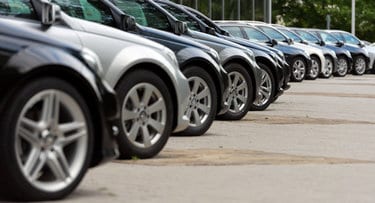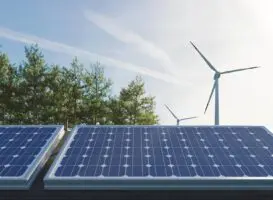Cars remained in the news over the past week, with VW facing further consequences of the diesel emissions scandal – while other car manufacturers are considering the effects of the scandal for each of them.

Volvo Car Group is developing its first all-electric car and broadening its range of plug-in hybrid vehicles, betting that their time has come. The first step will be the introduction of plug-in hybrid versions of the larger 90-series and 60-series cars, the Gothenburg-based manufacturer said. The carmaker said it will offer the fully electric vehicle by 2019.
“We believe that the time has come for electrified cars to cease being a niche technology and enter the mainstream,” Chief Executive Officer Hakan Samuelsson said.
Toyota Motor said it’s targeting a 90% reduction in emissions from its new vehicles by 2050 as it seeks to build on the success of its hybrid autos.
The maker of the hydrogen-powered Mirai sedan said it aims to deliver more than 30,000 fuel-cell vehicles annually by around 2020. The Prius seller also set a goal to reach more than 15m cumulative deliveries of hybrids in the same span. With more than 8m units sold in less than two decades, Toyota is by far the industry’s top seller of hybrid vehicles, led by its Prius model. About 14% of the cars and trucks it sold worldwide last year were hybrid or plug-in autos.
In the UK, Aston Martin Lagonda, the 102 year-old maker of high-performance cars such as that featured in the new James Bond film, Spectre, is envisioning a future when its engines are fuelled by electricity instead of gasoline.
The British company is working on a battery-powered version of its current Rapide sports car that will be available as early as at the end of 2017 followed by a new electric DBX crossover, said Chief Executive Officer Andy Palmer.
“We’re talking about an electric Aston Martin with between 800 and 1,000 horsepower—imagine having all that torque on demand,” Palmer said in an interview at the Bloomberg New Energy Finance EMEA Summit in London. Watch Michael Liebreich’s ‘state of the clean energy industry’ keynote from the event here.
Meanwhile, Volkswagen is being forced into a mandatory recall of about 2.4m diesel cars in Germany after authorities rejected the carmaker’s proposal for voluntary repairs.
The Federal Motor Transport Authority, or KBA, demanded the recall after reviewing proposals from Volkswagen to fix cars fitted with software designed to cheat on pollution tests, German Transport Minister Alexander Dobrindt said. A mandatory recall will speed the process, which Volkswagen had originally said would take until the end of next year.
With an eye on the legacy of his presidency, and ahead of the Paris COP21 climate talks in December, President Barack Obama invited executives from five Fortune 500 companies to the White House in a bid to shore up business support for curbing climate change.
The roundtable discussion will include the chief executive officers of Johnson & Johnson, Intel, Berkshire Hathaway Energy, Hershey, and PG&E, as well as five other companies that act as suppliers to those corporations, a White House official said. The group will discuss “carbon mitigation, sustainability and resiliency and how technologies are emerging to support and scale these efforts,” according to the president’s schedule.
Obama is working to build public support for a global climate accord that he’s counting on as a legacy-defining achievement.
More broadly, the range of entities weighing in ahead of the talks has been growing — calling for action on climate change is as trendy as it gets for corporations these days. Still, the latest businesses to declare support for a global deal on greenhouse gases may turn some heads.
Fourteen companies that issued a joint statement last week endorsing international negotiations include leaders from some of the world’s most carbon-intensive industries: coal miners BHP Billiton and Rio Tinto; oil majors Royal Dutch Shell and BP; aluminium producer Alcoa; and the planet’s biggest cement-maker, LarfargeHolcim.
Along with a mix of power utilities, industrial-equipment makers and technology companies, the businesses are backing a UN effort that’s set to conclude in Paris with an agreement among almost 200 nations to rein in fossil fuel emissions blamed for warming the climate. The negotiations are “a critical opportunity” to lay out a path toward “progressively decarbonizing the global economy,” according to a statement from the companies.
Most of the preparatory work, however, is much less public. Climate envoys in Paris will probably consider a new carbon market to bolster countries’ emission-reduction strategies, according to a German government official.
National climate pledges in the run-up to the Paris talks are “not enough to meet the 2 degrees target and that’s the anchor for us to talk about the ambition mechanism,” Franzjosef Schafhausen, director general of climate change policy at Germany’s environment ministry, said in London. Envoys probably need to consider a voluntary carbon market after the Group of Seven nations vowed to place climate protection at the centre of its economic-growth agenda, said Schafhausen.
BNEF’s slidedeck: How ambitious are the post-2020 targets, discusses the relative level of ambition of country’s INDC pledges.
In other news, Chinese billionaire Liang Wengen’s Sany Group plans to pour $3bn into India’s renewable power sector, as Prime Minister Narendra Modi seeks a major expansion of clean energy in one of the world’s biggest polluters.
The investment for 2016 to 2020 will create 2,000MW of capacity, according to a statement. Modi’s goal is 175GW of green energy capacity by 2022, up from about 37GW, at an estimated cost of $200bn — more than the size of Vietnam’s economy. Billionaires such as SoftBank Group’s Masayoshi Son and Foxconn Technology Group’s Terry Gou have also outlined plans for substantial investment in clean energy in India.
Source: BNEF. Reproduced with permission.








